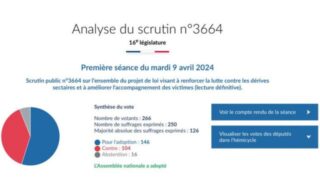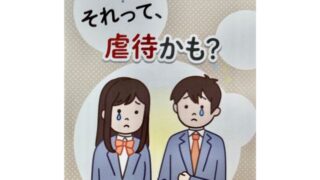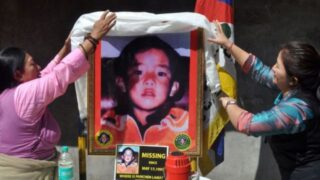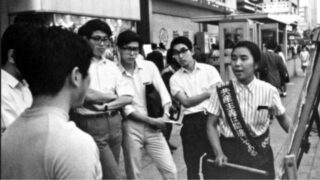The story of nine brilliant, professional women who were falsely and obnoxiously labeled as “victims” and “prostitutes.”
by Susan J. Palmer
Article 4 of 5. Read article 1, article 2, and article 3.


When my colleague Professor Holly Folk and I interviewed the women “victims” of BAYS, we found they were quite diverse, in terms of age and profession, but we noticed they shared features in common.
We interviewed them in their small, compact, beautifully kept homes. Five of them lived outside the 10-floor building of the ground floor cafe where BAYS held its classes until the raid disrupted their activities. The other four did live there. The BAYS members building functions as a coop, not as a religious commune. The apartment owners pay maintenance fees but they are financially independent.
Another common feature is they did not have children. One woman (67) who joined BAYS in 1990 and has owned her apartment for 32 years explained, “I don’t believe in marriage. Argentinian culture is very machista, so when you get married you belong to your husband. I belong to me.”
Other women explained they had always put their careers first and valued their independence and freedom. However most of them maintain close relationships with their relatives outside BAYS. One woman said, “I have always put my career first, lived with boyfriends, never married and now I am very involved with my niece and her children.”
Another woman told us about how she was planning to freeze her eggs so she could be a mother after she turned 40. Only one woman had wanted to have children but was unable to conceive due to a health problem.
These women all had long term boyfriends, partners, or husbands (except for one woman whose life partner had recently died). Two were with men they had known since childhood when their parents brought them to play together during the BAYS meetings. Only one woman was with a man who was not a BAYS member.
An interesting pattern we noted was that, with only two exceptions, these women preferred to live alone, so the couples owned separate apartments.
All these women were passionately engaged in their work and highly motivated in their chosen professions; as artist, actor, television producer, computer technician, salesperson, etc.
Their accounts of the August raid and the ensuing negative publicity that affected their personal lives and careers were quite consistent.
One woman (65), a professional artist who has owned her apartment for 7 years, said, “I feel more comfortable living with people I know.” She was in the cafe when some 100 Argentine Federal police officers with helmets, shield, and heavy guns broke the street doors and the doors to 22 apartments (out of 24): “When I returned to my apartment I saw the police had collected all my gold jewelry in a jacket. I screamed so they changed their minds and didn’t take it.”
She spoke of the impact of the well-publicized raid on her career: “I have always made a living from my paintings and from teaching art. I have lost my teaching work and my clients, and now I make crafts to sell at artisan fairs.”
All nine women reported the same “Catch-22” experience when they were interviewed at the Camara Gesell (Special Victims Unit); that when they denied being a victim, they were told their denial “proved” they were victims.
The artist said, “It is a place where you sit and talk to a psychologist and there are mirrors, behind is the judge, the lawyers they don’t interrogate you, you are alone with the psychologist. But the judge said, ‘The victims don’t realize they are victims.’ For them, they say I was abused for 30 years and didn’t realize it, so they treat me like an idiot. The Prosecution says I am a victim of ‘coercive persuasion.’ In my opinion, they create this bullshit, these liars. They call me a ‘victim’—and I still don’t know of what. My photo was on the media, my face was seen in a television show because there was a TV channel inside the cafe during the raid. The prosecution, the judge, they don’t care about the people who belong to BAYS.”
Another woman (45) from a Jewish family, graduated from university with a MBA, and has worked with her father, a TV producer, in various roles at his station, producing television shows.
But after the raid, her life has changed dramatically: “I was in the cafe when I heard men screaming and banging. The police were breaking down doors, tearing up all the apartments. A policewoman told me they were having trouble getting in the door of my apartment. It was a Blindex door, so I went with her to open it with my key, but they had already broken it down, along with the wall attached to the door, and there were deep marks in the floor. They took all my pictures and the deed of sale of my apartment. For four nights I couldn’t sleep because the door was broken and I was afraid to be alone, to be robbed again. The damage they did was terrible! It costs thousands of dollars to repair the door and the wall.”


“The police, she continued, took my father and my sister to be questioned. Pablo Salum posted photographs of me and my dad and some of our employees at the TV station on Twitter. One woman resigned because she feared her image would be tainted working with us. My boyfriend, he lost his job in the real estate company, and he is now trying to rebuild his career. He started a new realtor business, he has a degree in this field. The mother of my boyfriend was one of those accused of human trafficking. He is trying to be strong for his mother, sister, and me.”
“It would be nice, she concluded, to live as if we weren’t back in the Inquisition. We want our voices heard. In Camara Gesell, our word is not valued. They asked me strange irrelevant questions like, ‘Are all your members Jewish?’ They should have proof and taken the time to evaluate us before tagging us—labelling us as ‘prostitutes’ and ‘brainwashed victims.’ Tagging someone is easy, but getting rid of that tag is more difficult. I work in the media, in television, so I know how it works. When we are eventually found innocent, no journal will bother to report on us—or maybe there will be a tiny paragraph on the back page. Now our faces are all over television, Pablo Salum mentions our names and call us ‘cultists’ on his anticult website. Tagging is so simple. I don’t know if I will ever be able to ‘de-tag’ myself.”
One of the supposed “victims” (57) we interviewed is from a Catholic background and has always worked as an actress. Against her parents’ wishes, she studied theatre for six years, and in 1991 joined BAYS. There she met many creative actors and artists who helped her launch her career. Her instructor in BAYS was a well-known professor of theatre who “taught me to love my profession as an actress.” She worked in comedy and wrote for a magazine that offered political satire (“a relief from the oppression in which we were living”). Two of her cousins disappeared in the 1970s [she showed us their photos], leaving behind their 3-year-old daughter who was then raised by her aunt.


This actress described her experience of the raid: “In the cafe I see the first policeman enter and I see surprise on his face. All he saw were fifty old people sitting at tables, drinking tea and coffee, reading books. The police were evidently hoping to bust into a sex orgy. They started to break the other doors, I said, ‘No, these are our homes, let us give you the keys!’ But they didn’t want our keys. They made us wait at gunpoint in the cafe. They had photojournalists with them and they wanted to appear on the news on TV as heroes ramming in the doors of the evil ‘cult.’ Finally, at midnight, they allowed me to go to my apartment. I was worried about my roommate, who is 64 and very small. When I saw what they had done, I became very angry. They broke my door in, everything was in a mess. They threw my roommate down on the floor and held a machine gun to her head. She told me they had found money in my bedside table. These were envelopes given to me of money with the names of my friends in BAYS, old people who live in the building. They had asked me to do their shopping for them during the pandemic, and I was still helping them. But I made friends with the police, so they gave me the money back.”
She continued: “I am suing Pablo Salum. On his website he uses my image and implies that I am a prostitute; that Juan gave me to rich and powerful men to raise money for the cult. He showed a video from one of the magic shows where I was Barragán’s assistant. He says I was ‘naked,’ but I was not, I was wearing a dance leotard. Salum put my name on this video, so now I can open a lawsuit for harassment, for slander and insults. This is a misdemeanor, so I am filing a civil suit. The judge has summoned Pablo Salum to the court. So, next Thursday I will meet him in mediation and I will pursue him to the end!”


The injustice these people were experiencing seemed all the more severe because they were citizens of Argentina. Thus, their anxiety was compounded by memories of the “corralito” (2001) and the “desaparecidos” of Argentina’s “Dirty War.” Several members we spoke to described how they were worried about their loved ones (who were arrested on the fateful night of the raid) would simply… disappear. Therefore, they described how they would jump in their cars and tail the paddy wagons to find out where they were being detained. The BAYS members would take shifts, setting up a 24-hour guard to ensure that no detainees disappeared.








